0%
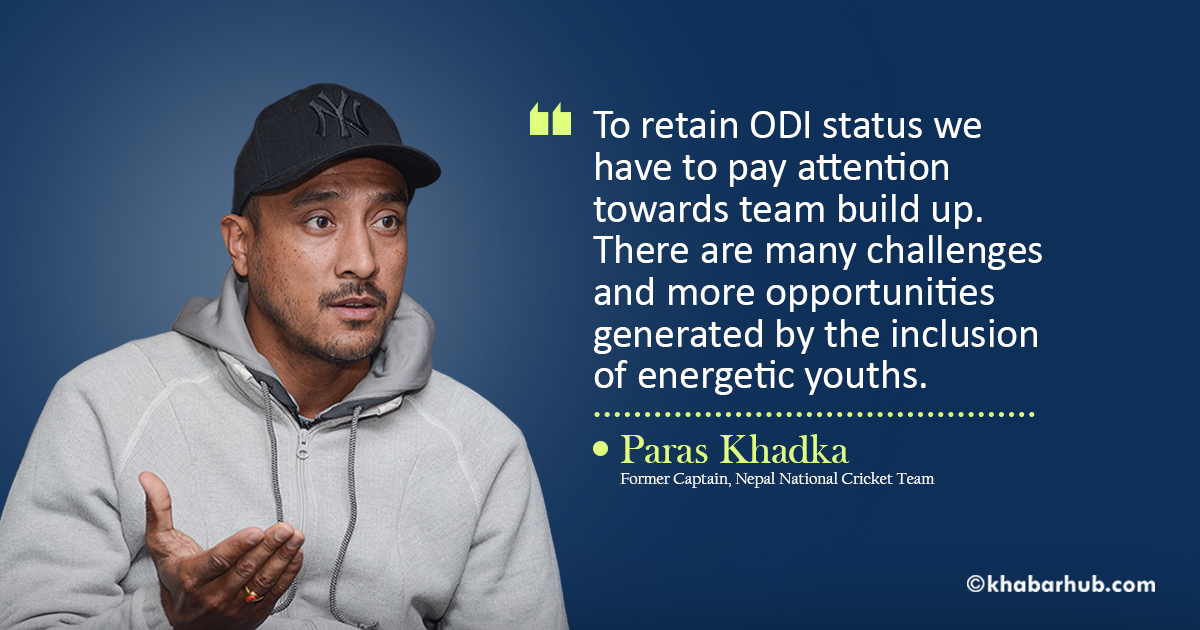
Paras Khadka, former Captain of the Nepali National Cricket team, is in the close camp meant for the preparation for the World Champions League-2. Feathered as the most successful captain of Nepali Cricket, Khadka resigned from the post in October 2019 announcing his continued support to the team. He is currently in the national team.
He is credited for upgrading the Nepali Cricket team from T-20 World Cup 2014 to One-Day International (ODI) status. Recently, Santosh Raj Pandey on behalf of Khabarhub had had an interview with this successful captain. Here are the excerpts of the interview that included the talks related to Nepali cricket’s future, challenges, the role of CAN in the development of Nepali cricket, the domestic league’s impact in the development and professionalization of the player.
It’s been nearly three months that you stepped down from the captainship of the national cricket team. How did you feel taking part as a mere player during the recent SAG?
While still holding the captain’s feather, I consistently told the players that everyone has to prove himself as a player. I joined the national team as a player. More than what position you hold, what’s important is how much you can contribute to the team.
As a captain of the national team, I spent a decade. It was all about time.
Nepali cricket, now, is in a stable position. The Cricket Association of Nepal (CAN) has been redeemed of the suspension. Besides, Nepal is in a crucial phase as it has been offered a three-year period for the ODI status.
While playing in division league, we used to wonder what the fate of Nepali team would be provided we lost or won a match. Now, I play for myself. Whether as a captain or as a player, I play cricket just because I like it. To be precise, I didn’t have the dream of playing for Nepal. I feel very lucky that I could get that opportunity. I shall strive my best to uplift Nepal’s status.
The arrival of new leadership in CAN, ICC’s conditional waive off of its suspension, your stepping down from captainship all seem to occur in a series, almost simultaneously. Is it merely a coincidence or there was something more?
I would say it’s a mere coincidence, nothing at the backdrop. I was waiting for the waiving off of the suspension against Nepali cricket. It was more than three and a half years that I had decided to quit as a captain. Had I resigned with my dissatisfaction with the CAN leadership, I would have announced my retirement earlier. Whatever people may think, cricket is my passion. I will play as long as I can contribute substantively as a player.
The players strive body and soul for the country. I hope the Cricket Association will act responsibly, take equal responsibility and together shall lead Nepal to a new height. Players need support and encouragement. They alone can’t work much, so the Association should offer support and help them go ahead.
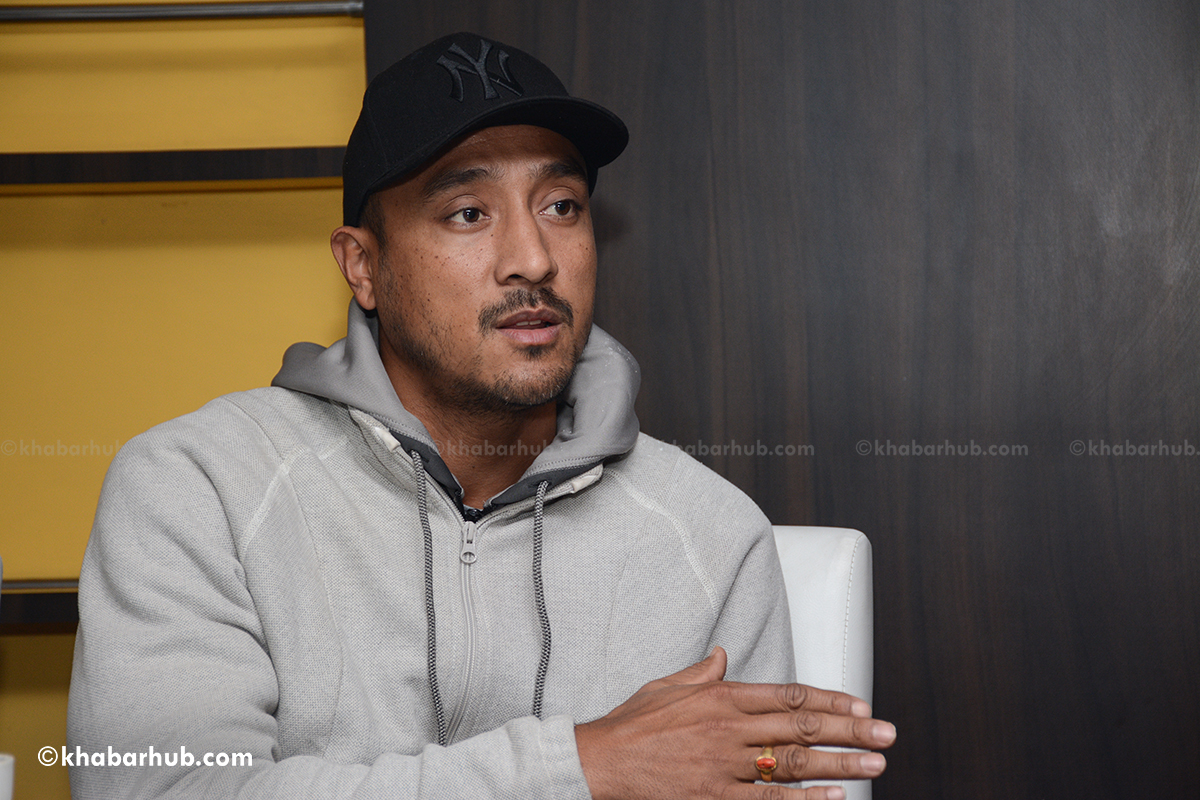
What are the changes after CAN’s arrival? The new leadership has passed three months in the office. How do you evaluate its performance?
In fact, I am not quite aware of the meeting schedules. I am equally unacquainted with the activities taking place internally. So far as I know, the preparation for the trilateral series is going on. The responsibility of its arrangement goes to CAN. Perhaps, they are working on it.
It’s only three months that the new leadership has taken the office. They might be planning something concrete. You’d rather ask them about it.
How do you remember your decade-long captaincy?
My priority was to give my best for the nation. I did not have any other motifs. I had not thought I would play so long or I would be leading the national team for a decade. I always strive for the best in the area or profession I join.
To be frank, my decade-long captaincy was heartwarming notwithstanding the ups and downs. There were some moments when I was totally upset and even thought of quitting it all. Moreover, we were stuck in 4-2 division much longer than our expectations.
We reached the World Cup through Twenty20 Qualifier in 2013. That was the biggest achievement of Nepal’s sports history. That, I would say, was a historic achievement. After the World Cup, we gave our best in New Zealand.
That contributed to attaining the ODI status. We were then wondering what we would be doing next. Coach Pubudu Dasanayake and I sat and discussed whether it was good to continue in the post for such a long time. We then realized that my resignation would bear no good fruit. So, we decided to wait till the World Cup; but once we played it, the cricket brought a new revolution in Nepal.
Cricket fans started making memes for cricket. We received thousands of messages on social media from them which means that the cricket craze was overwhelming. We were inspired when people, especially youngsters, were talking and watching cricket. As a sign of encouragement for us, the craze had multiplied in the country after we played cricket in Bangladesh.
You know, what? Sometimes, we tend to get quite emotional when our national anthem is being played in an international game. During that very moment, our eyes fill with tears. I consider this a proud moment in life which enthuses us to continue our journey as cricketers.
We got the ODI status in 2018 because of the team effort. That was the optimum of Nepali cricket then. In fact, it was all because of the team-work spirit. I never underwent a problem in the pitch; however, there were problems in abundance off the pitch.
Didn’t you protest then?
Yes. When we felt CAN did not catch up with the spirit and the speed, we protested. In a way, we had no way out. The authorities concerned were not ready for dialogue. We sought a joint meeting of CAN and the players, but they did not heed to it. Reason: CAN officials were divided.
Our target was to go for the optimum in the field. The zeal, the energy, the hope we had in the field was not there off the field. Neither the physical infrastructure nor the perks or benefits for the players seem to get any priority. They gave us big assurances but never thought of fulfilling them because of which we even boycotted some of the national tournaments. Now, we’re delighted with the ODI status.
For Nepal, ODI status is far more great achievement than the World Cup. However, many people are yet to realize it.
By 2018, when we played three One Day International series. We have only 2 more years with this ODI Status. This is all because of the suspension against CAN. We took up the issue with ICC several times, but they could not perform as per our expectations; maybe because they have to look after all cricketing nations and Nepal alone can not get the privilege.
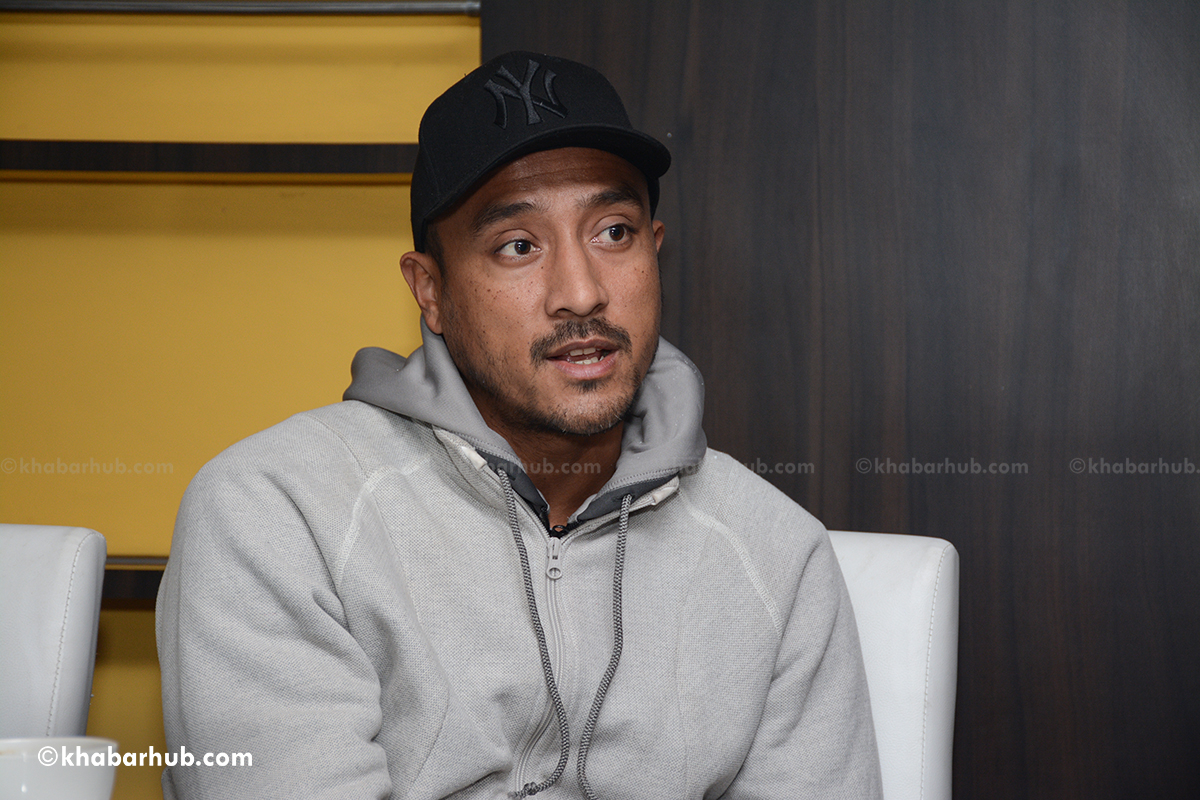
Did the protest work?
Obviously, that really worked. All the players supported me in the field. We gave our best. We were focused on uplifting the team. The present status of Nepali cricket is the outcome of untiring efforts from all of us.
How challenging is it to retain ODI status?
With escalating craze and better players, the question of retaining the ODS status has become a real challenge now. As a prerequisite for the ODI, one has to play very well in the 50 over’s World Cup qualifier. One can get ODI status through selection.
The selection is based on performance unless we are a test playing country. We can’t hold the position just playing a few good matches. It’s high time that all concerned considered it. To acquire a better position in another 8-10 years, we all need to start the homework right away.
Furthermore, to retain the ODI status, we must pay attention to team building. There are both challenges as well as opportunities generated by the inclusion of energetic youths.
Though it’s not a bad idea to wish we could reach the top, we have to be realistic. Besides hard work, we need to have patience. So, I have been telling cricket fans to have more patience. The fans want results. The craze for cricket is growing, yet retaining the mechanism is not that easy as expected by the fans.
In the last 5-6 years, we have got good exposure. The amenities are also decent. However, unless we have better exposure, we can’t expect the best. The better the exposure, the firmer and better the team. However, the major thing is to focus on bench strength and the quality improvement of the players.
In the end, everything depends on match practice. The better team we play with, the more our strength gets charged. We have talents but they are not properly exposed. Provided they are exposed, we can do a lot in the coming 2-3 years.
The players have potential, which, however, is not the only factor that counts in international cricket. The Association should work towards creating a conducive environment that encourages the players. I believe, the players can perform better.
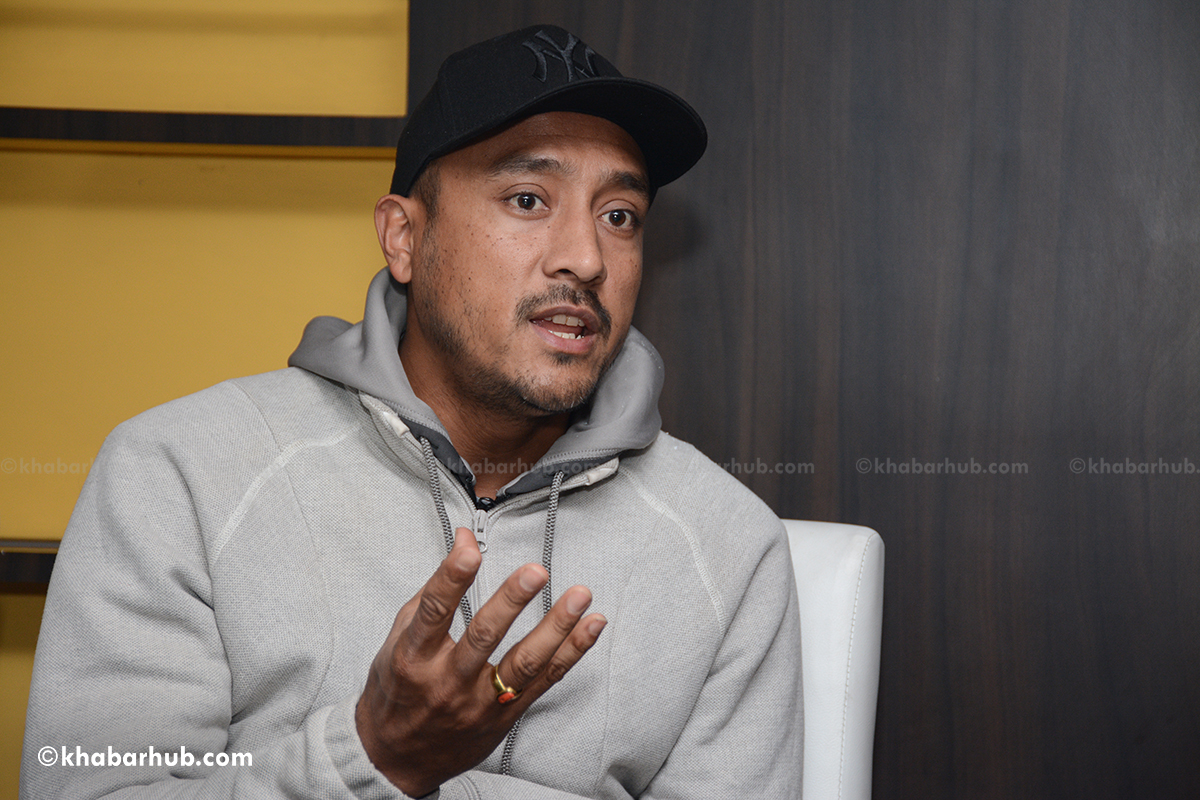
How should Nepal prepare for the forthcoming World League Championship?
The preparation is about to start. Besides, most of the players are working hard in their own way. Some played in Pokhara Premier League and some more are playing the YumYum Cup.
In the meantime, the camp is starting soon. The more the players get the chance to practice, the better they perform. The camp shall be for 20-25 days. The match will be played in Nepal. We can perform better in the home-ground than in other places. I am hoping for the best. We are working hard, though the result does not depend on the preparation alone, it matters how the opponents play.
We have still the advantage of the home-ground. Yet, we have to improve in all three departments: batting, bowling and fielding.
How can we manage the prevalent leagues and arrange for the integrated investment from the private and the public sector?
Existing leagues especially Pokhara Premier League, Dhangadhi Premier League, and Everest Premier League proved pivotal in sustaining Nepal Cricket during the CAN suspension period. We have to be thankful to the owners, sponsors and supporters of these leagues for making a good environment for Nepali cricket, especially during its crisis.
Now, we expect Nepal Premier League, but there are various factors related to it as who should design the model, who should take the ownership, etc. Existing leagues also have impacted affirmatively.
I am also involved in a private institution, PPL. Although whether the leagues should be dismissed or allowed to function is debatable, what we have to confess is these leagues have helped in improving the profile of the players and making them more professional. Our players are getting the chance to play with international players.
Besides, domestic leagues have a different charm. We have to work together to make it more organized and systematic. I hope the CAN officials will make some plans for Nepal Premier League if they want to organize. It should be clear who will be the stakeholder for NPL. Everything goes to management again. Personally, I believe, even if NPL is organized other leagues can also keep on their matches.
How do you take the new provisions relating to the foreign players in EPL?
EPL, DPL, and PPL all are private leagues. They can make their rules on their own. However, their rules should abide by the rules made by CAN. I hope CAN will make some rules and policies on it. Unless they contradict with national and global rules and policies, the leagues can make the rules. CAN can regulate all by its rules.
The players are free to make their decision on whether to play it or not. The leagues can make the policy on who to include in the team and who not. If you want to participate, you have to follow it.
How was your PPL experience both as a winning captain and the manager?
Obviously, success is delightful as once you play you aim to perform the best and often dream victory. We won all 6 matches out of 6. Batting, bowling and fielding all went well in Pokhara.
So far as the pitch in Pokhara is concerned that’s the best. Everyone has appreciated it. The forthcoming national team’s camp is also going to be held there. That’s an achievement.
With the intent of creating an impact, we had started Queen’s Event Management 2 years before. If we Chhumbi Lama, Gyanendra Malla(now captain of Nepal National Team) and I could make it happen, what about the bigger efforts. The pitch turned out to be so good that we are likely to have international matches over there as well, like the one with Malaysia 11.
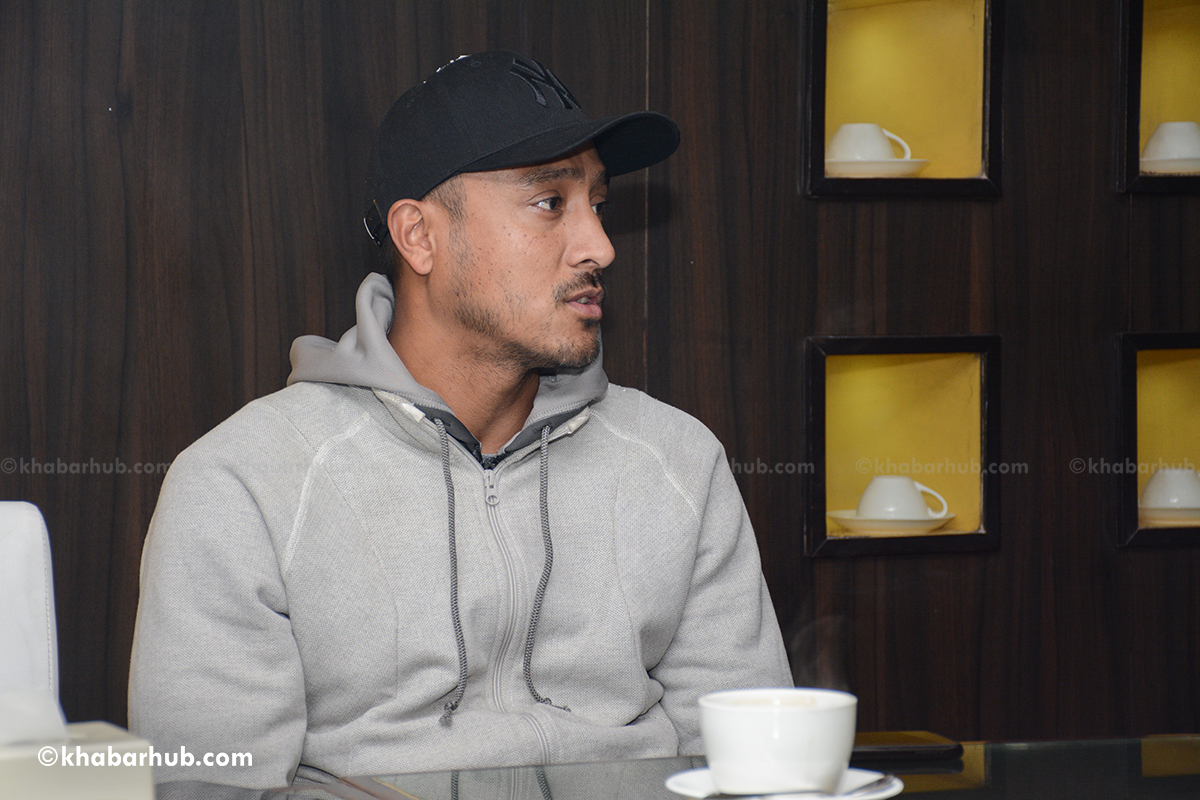
The stadium has opened everyone’s eyes. Nepal government, the provincial government, National Sports Council (NSC) and CAN all are saying that they should invest in it. That is a big success for us. Now, we have to think about upgrading it to international standards.
Pokhara did not have much craze for cricket, now it has a base. Provided NSC and Nepal government work together Pokhara Cricket Stadium can be a model cricket stadium of the world.
Management is always challenging. We utilized the resources we have at their optimum. We hare delighted that premier leagues have energized the players. We have been getting a good response by the time we have come to the second edition. It could be better provided Nepal Government helps in the construction of parapet.
What role can we expect Paras Khadka in the ten years from now?
I am a player now. I will play as long as I can. But, telling honestly, I would like to come in management. I am aware of claiming or wishing something does not suffice. I have to work to make myself eligible and prove it. 10 years is a long time. First, I had not thought I could be a cricketer, I played and arrived here. Surely, I will still be in cricket and will be working for the development and promotion of it.